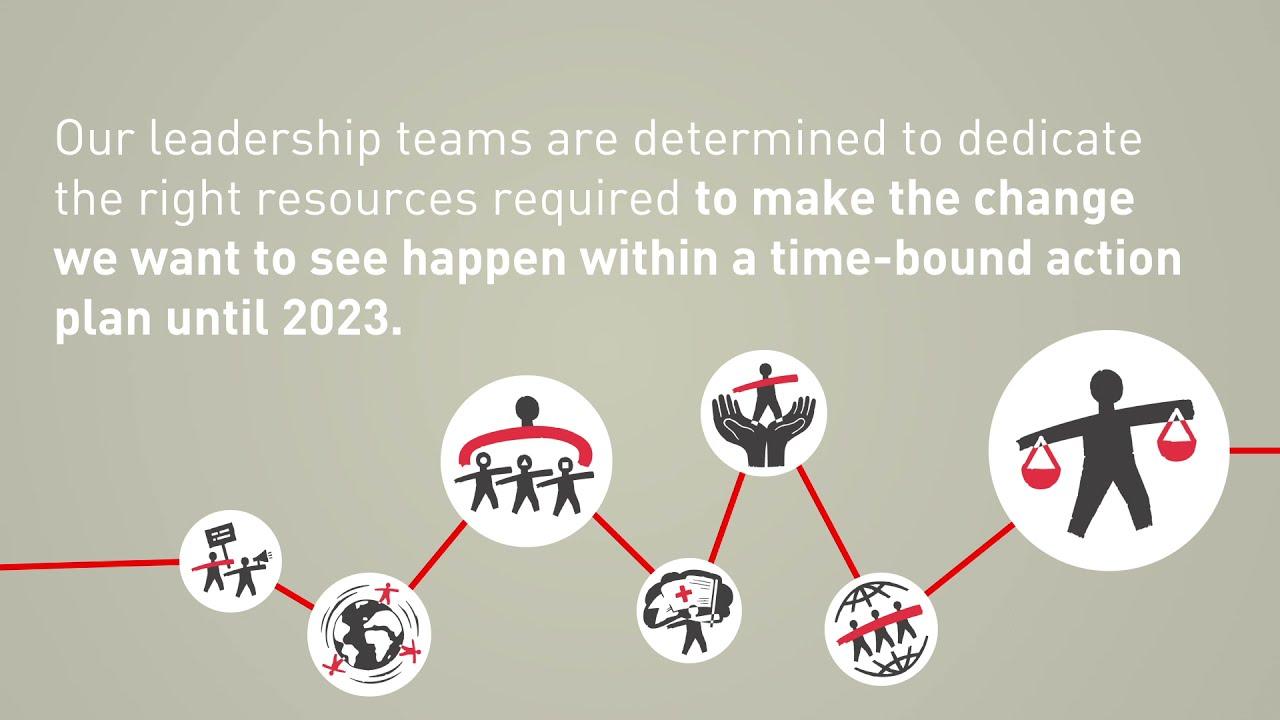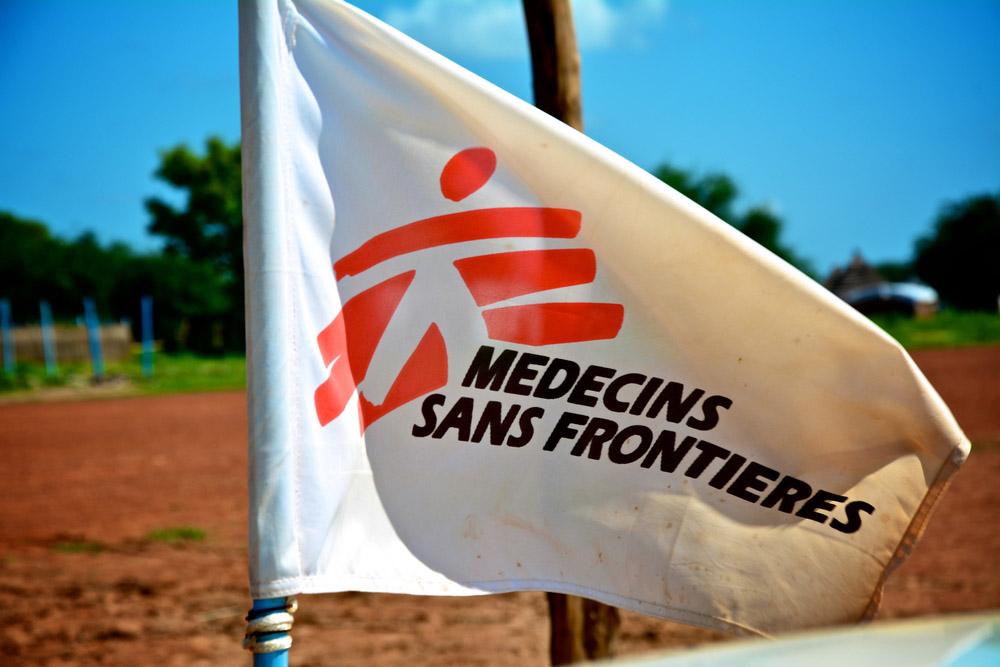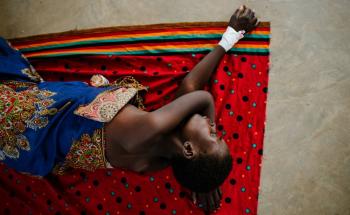What is Structural Racism?
A system in which policies, institutional practices, cultural representations, and other norms work in various, often reinforcing ways to perpetuate racial group inequity. It identifies dimensions of our history and culture that have allowed privileges associated with “whiteness” and disadvantages associated with “colour” to endure and adapt over time. (Aspen Institute, 2016)
During the last 12 months, as colleagues at Doctors Without Borders (MSF) Southern Africa, we’ve invested crucial time and effort to work on racial justice. Born in the 1970s, our international movement is interconnected with the legacy of colonialism within the aid sector. Today, the inequalities stemming from colonialism in Southern Africa and beyond still confront us. We must recognise that the imbalance of power between “aid provider societies” and “beneficiary societies” has the potential to amplify the pain and suffering of the communities where we work when lives and contributions are devalued.
Recognising this injustice is the spur urging us forward and to make the changes needed to dismantle structural racism in MSF Southern Africa and our international movement. The only way forward is to ensure radical and permanent change. First, we must acknowledge the damage, hurt and disadvantage that structural racism has traced in the lives of colleagues of colour and the people who are our patients. For this, we express deep regret, and we are profoundly sorry.
It is our responsibility to change the policies, practices and behaviours that keep structural racism in place in our organisation.
We also acknowledge that bringing change to a large, complex global organisation like MSF is not easy and that it has been slow going so far with previous attempts failing over the years. The case for change is urgent and at MSF Southern Africa, we have intensified the work to become an anti-racist organisation, focussing our efforts on the areas within our local mandate to deliver and to work toward restoring the dignity of colleagues of colour.
Working to end racism, discrimination and inequality in MSF will benefit everyone across our movement, including our patients, and can turn our organisation into the MSF that we truly want it to be, living up to our principles and charter. Already there is substantial energy and activism inside our organisation internationally. Over a thousand current and former MSF staff around the world have mobilised under the ‘Decolonise MSF’ banner and as MSF Southern Africa, we support them and work as allies to ensure transformation.
Along with this groundswell demanding change inside our organisation, at the highest leadership level internationally there is a determination to do so. In 2020, the international executive leadership of MSF committed to undertake reforms that include:
- Breaking the glass ceiling for locally hired staff in the places we operate in terms of their career development and growth;
- Addressing the difference in pay and benefits in our teams based on where they are from;
- Reviewing the methodology for assigning staff to certain projects in conflict zones based on their race or nationality in addition to professional criteria, to manage aid worker safety considerations. In some instances while the practice enables access to operate it can raise concerns linked to inequitable risk exposure;
- Continuing to tackle the broader issues of harassment, abuse and discrimination throughout the organisation, specifically focusing on the patients we treat to ensure they can truly be protected from – and report on – possible abuse perpetrated by MSF staff; and
- Critical assessments of any medical double standards that may exist, for example when reduced levels of quality of care becomes a norm in numerous countries where we operate.

Dismantling Structural Racism: MSF Southern Africa
Back in August 2020, we, as MSF Southern Africa, embarked on our own journey to dismantle the structural racism in our midst with the help of an independent organisation, Reos Partners, setting ourselves an ambitious three-year project timeframe. We started with several workshops, where we encouraged our people to share their experiences and thoughts about structural racism and how to break it down. A number of people from teams in our region related difficult personal testimonies. At times, these conversations were difficult and uncomfortable but this discomfort pales in comparison to the hardship and injustice colleagues of colour have experienced over the years locally and internationally.
Taking this step was vital, as we believe it will help MSF Southern Africa to be transparent and accountable in our processes and progress toward becoming an anti-racist organisation. Together, we have learnt that structural racism is complex, with its presence obvious at multiple levels of society and in countless arenas – and particularly pronounced in the aid sector. In Southern Africa, the remnants of the colonial era and apartheid are still with us. We need to work every day on rebuilding our structures toward racial justice by undoing the racial legacy of the aid sector and MSF’s shared past. We acknowledge the ways in which racism persists in policies, institutional practices, and cultural representations and how individuals internalise and respond to racialised structures.
What have we done concretely, since then, as MSF Southern Africa?
We have appointed a Dismantling Structural Racism Reference Group, made up of MSF staff and organisational transformation experts from Reos Partners. We have established empowered working groups that developed an agenda for change, delivering clear recommendations on seven work streams identified through collective consultations. The themes of these seven work streams is what we see as crucial to dismantling structural racism in MSF Southern Africa and our movement:
- Constructing safe spaces for communication about racial prejudice so that our people can fully engage on structural racism without fear and with knowledge and the capacity to do so;
- Ensuring our people are accountable by building policies and practices to break with structural racism in MSF so that we become an anti-racist organisation;
- Developing and building ethical leadership in MSF to become an anti-racist organisation that is accountable and aligned to our social mission;
- Ensuring equity of culture in MSF where recognition and appreciation is given to all cultures in support of developing bonds based on understanding, discussing and valuing diversity within the organisation;
- Dismantling injustice in MSF’s HR system in order for our people to have just, fair and equitable experiences when they are recruited, managed and developed – regardless of where we work;
- Ensuring we are all MSF by dismantling divisions experienced between different groups, offices and positions across the movement in order for all staff to experience equality and that our value is not associated to roles or seniority; and
- Defusing white fragility in MSF, so that dismantling structural racism is not held hostage by the discomforted feelings of those who enjoy privileges due to structural racism in society and our organisation.
We know that the journey to dismantle structural racism in MSF globally and at MSF Southern Africa does not have shortcuts and that the path we are navigating will not always be smooth. That is why we want to continue to deliver regular public accountability updates like this one to you, our stakeholders.
These workstreams have been reviewed and endorsed by our 600-member strong MSF Southern Africa Association located in Angola, Eswatini, Lesotho, Malawi, Mozambique, South Africa, Zambia and Zimbabwe. The Association is the source of legitimacy for our governance structure – the Board of directors at MSF Southern Africa that oversees the Executive management team. The management team of the Executive and the Board of MSF Southern Africa have affirmed their determination to take action and dedicate the right resources required to make the change we want to see, happen.
Linked to this work, we have subsequently identified priority elements emerging from the 35 specific recommendations, which are essential enablers to speed up the transformation we seek.
These game-changers are:
- Ensuring mandatory participation from staff in work on dismantling structural racism;
- Developing an anti-racist human resources policy, and ensuring strict compliance;
- Developing a leadership incubator programme to nurture the talents of future leaders who are people from Southern Africa;
- Taking active steps to defuse white fragility among the holders of privileges to smooth the path for change; and
- Demanding accountability from those in senior leadership and staff with management responsibilities for progress.
The task ahead for our Executive management team and managers at MSF Southern Africa is to follow through on the specifics of the points above within a time-bound action plan until 2023.
We know that the journey to dismantle structural racism in MSF globally and at MSF Southern Africa does not have shortcuts and that the path we are navigating will not always be smooth. That is why we want to continue to deliver regular public accountability updates like this one to you, our stakeholders – including staff, Association members, donors, supporters, patients and partners – so that we don’t falter in pursuing the change we want to see. We invite your continued scrutiny to maintain our transparency and our resolve over time.
As our journey continues, we want to invite colleagues who have experienced discrimination and the harmful impacts of structural racism during their time with the organisation to speak out with courage through our various reporting mechanisms and to join the change process. We believe you. We support you. We cannot change without you. What you might say will be difficult and discomforting but it is essential to hear your voice in order to transform MSF Southern Africa and our global movement.
We want to achieve an MSF that is an ever more diverse, equitable, just and global organisation, where everyone can contribute equally to tomorrow’s definition of medical humanitarian action. We know we can get there with your support by probing our actions to help ensure that concrete action makes good on the commitments we express. As the proverb tells us: If you want to go fast, go alone. If you want to go far, go together.
We have a long road to travel, so we place our trust in you as our partners for this journey to become an anti-racist organisation serving humanity with medical care when and where the needs are greatest.
Thank you,
Bhelekazi Mdlalose, President MSF Southern Africa and Andrew Mews, Executive Director MSF Southern Africa



